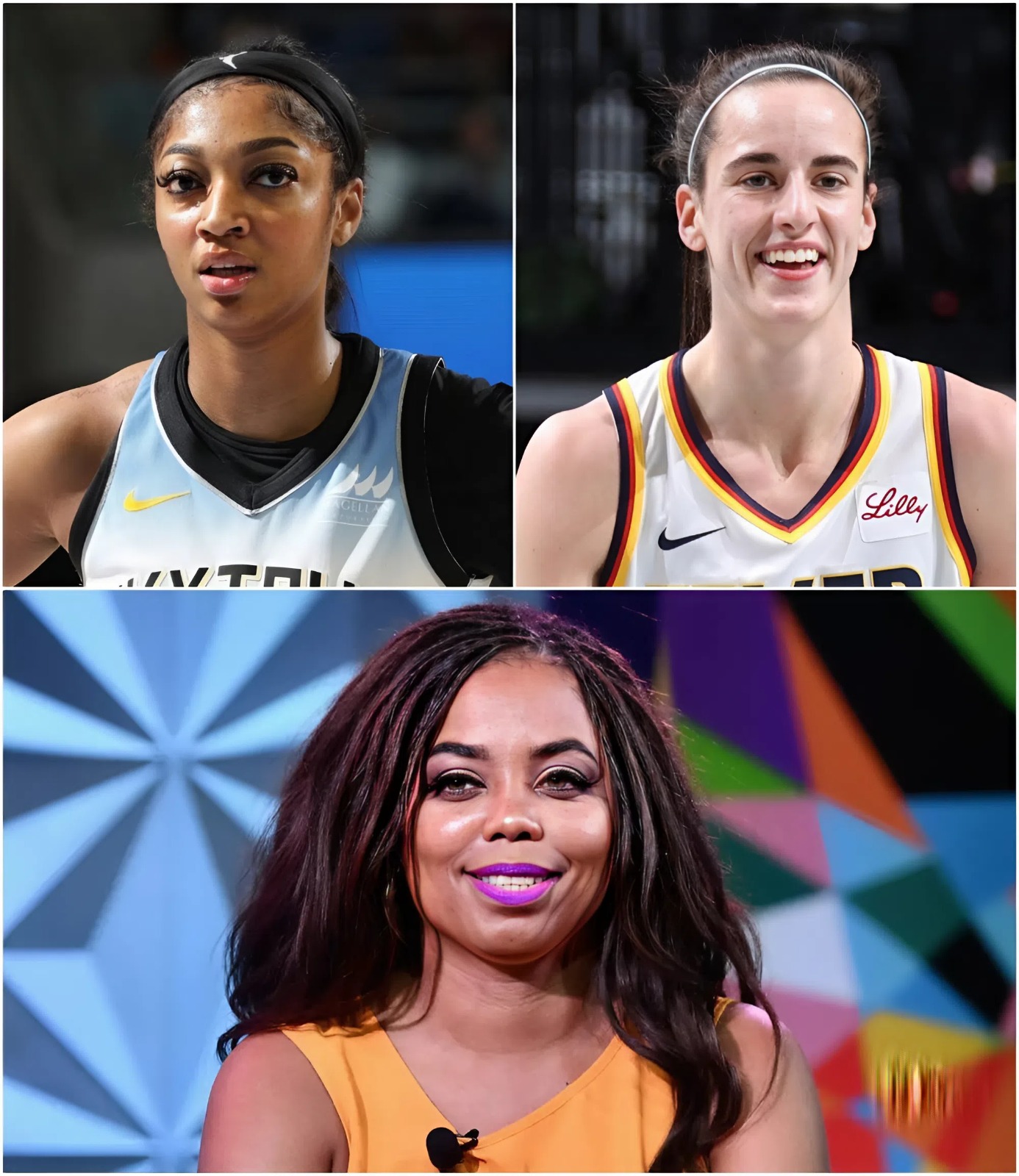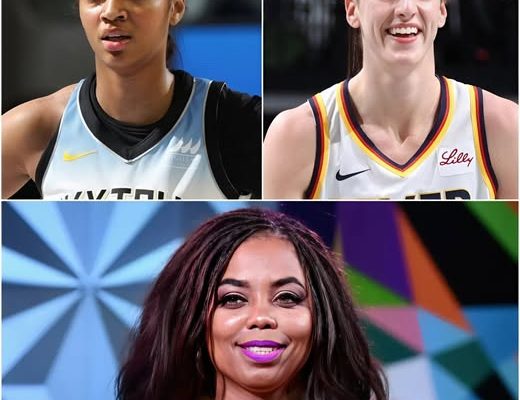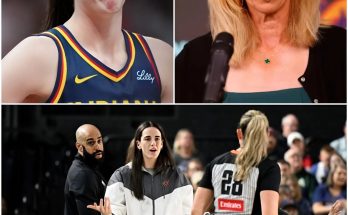
The rivalry between Angel Reese and Caitlin Clark has never just been about basketball.
It’s been about narratives. About framing. About how America chooses who to cheer for—and who to question.
So when Emmy-winning journalist and cultural commentator Jemele Hill recently said on her podcast Spolitics that Angel Reese could be “the Michael Jordan of the WNBA” and, more provocatively, that she’s “already playing better than Caitlin Clark,” the internet didn’t just react. It exploded.
But the real story isn’t whether Hill’s take is right or wrong.
It’s why she said it.
And what it reveals about the uneasy crossroads where race, gender, media, and athletic excellence continue to collide.
What Jemele Hill Actually Said
On her most recent podcast episode, Hill tackled the season-long media obsession with Clark and Reese, offering a deeper critique of how narratives are built—not just through box scores, but through coded language and biased assumptions.
“We need to stop pretending this is just about basketball,” Hill said. “The way people talk about Reese versus Clark tells you everything about the racialized lens we still apply to women in sports.”
She pushed back hard against recent viral commentary from Robert Griffin III, who suggested that Angel Reese “hates” Clark—insinuating a personal grudge rather than competitive intensity.
“RGIII’s comment wasn’t a sports take,” Hill noted. “It was a projection. Reese doesn’t owe anyone emotional softness just because Clark is the media favorite.”
Then came the part that set the internet on fire:
“In terms of presence, personality, and impact on both ends of the floor? Angel is already playing better basketball. If she keeps this up, she’s MJ in the making.”
Context Matters — And So Does History
To understand Hill’s claim, you have to go back—not just to the 2023 NCAA Championship game, but to how that moment was received.
Clark’s viral three-point bombs and confident trash talk made her a national hero. Reese’s equally confident rebuttal—most famously her “You Can’t See Me” celebration—sparked a tidal wave of criticism.
Clark was labeled “competitive.”
Reese was labeled “classless.”
The racial coding was obvious to many. Yet much of the mainstream media failed to call it out at the time.
Hill did.
And now, as both players navigate the spotlight of the WNBA, she’s continuing to connect the dots.
A Tale of Two Rookies — And Two Realities
Both Angel Reese and Caitlin Clark have hit the ground running in their debut season, but with very different media ecosystems surrounding them.
Clark is averaging over 17 points and 6 assists per game. She’s breaking rookie records for three-point shooting and has singlehandedly driven a 300% spike in WNBA merchandise sales.
Reese, meanwhile, leads all rookies in rebounding and double-doubles. Her energy, defense, and leadership have turned the Chicago Sky into a surprise contender.
But the praise hasn’t been equal.
When Clark struggles, headlines often blame her teammates, coaching, or officiating. When Reese struggles, she’s called “emotional,” “distracted,” or worse—unmarketable.
Hill’s podcast episode pointed directly at this double standard.
“When we talk about who’s carrying the league, we need to be honest,” she said. “Reese is showing up, every night, with grit, with defense, with leadership. That counts. And it should count just as much as buzzer-beater threes.”
Is Angel Reese the “Michael Jordan” of the WNBA?
It’s a bold metaphor.
But Hill isn’t comparing accolades—she’s comparing energy.
Reese plays like someone with something to prove, and every time she’s fouled, heckled, or shoved, she doesn’t shrink. She responds.
There’s a swagger. A defiance. A refusal to conform to what’s “expected” from a female athlete.
That’s what Hill is celebrating—not just Reese’s numbers, but her posture.
“Jordan wasn’t beloved for being quiet,” Hill said. “He was feared for being ruthless. Angel plays with that same fire.”
Backlash and the Fear of Uncomfortable Comparisons
Not surprisingly, Hill’s comments drew fierce responses online.
Critics accused her of “pushing division” and “manufacturing race bait.” Others framed her take as disrespectful to Clark—who has faced her own unfair treatment from defenders and league officials alike.
But Hill wasn’t attacking Clark. In fact, she’s praised Clark many times before.
What she’s critiquing is how we react to Clark versus Reese.
Why is Clark called “marketable,” while Reese is accused of being “too political”? Why is one embraced, while the other is expected to apologize for having confidence?
Those aren’t basketball questions. They’re societal ones.
The Bigger Picture: This League is Evolving — But Its Fans Must Too
The WNBA is enjoying a renaissance moment.
Games are selling out. Viewership is up 200% year-over-year. Stars like Clark and Reese are drawing national attention.
But with growth comes growing pains.
As Hill noted, the league can’t allow fans—or media—to pit women against each other based on lazy narratives or coded bias.
“We have room for both of them,” Hill said. “But we also need to confront why we treat them so differently.”
This isn’t about erasing competition. Clark and Reese are competitors, and there’s nothing wrong with wanting to see them battle.
But the battle should stay on the court—not in how we write about their character, their bodies, or their communities.
Final Thought: A Moment That Needs Both Heat and Light
Angel Reese isn’t Michael Jordan. And neither is Caitlin Clark. Not yet.
They’re 22-year-old athletes navigating the hardest season of their lives — one on the court, the other in public perception.
But the fire they bring, the attention they draw, and the legacy they’re already shaping?
That’s very real.
And if Jemele Hill’s latest commentary stirred the pot, maybe that’s because the pot needed stirring.
Because this league can’t grow by ignoring its contradictions. It can only grow by facing them — and by celebrating all of its stars, not just the ones who fit comfortably into old narratives.



